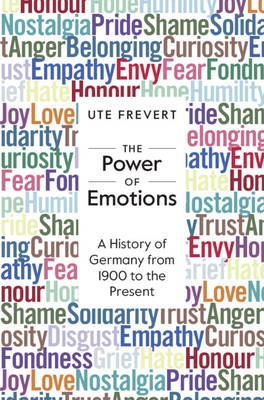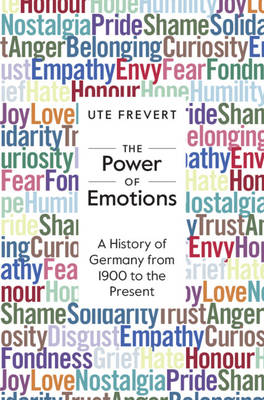
Je cadeautjes zeker op tijd in huis hebben voor de feestdagen? Kom langs in onze winkels en vind het perfecte geschenk!
- Afhalen na 1 uur in een winkel met voorraad
- Gratis thuislevering in België vanaf € 30
- Ruim aanbod met 7 miljoen producten
Je cadeautjes zeker op tijd in huis hebben voor de feestdagen? Kom langs in onze winkels en vind het perfecte geschenk!
- Afhalen na 1 uur in een winkel met voorraad
- Gratis thuislevering in België vanaf € 30
- Ruim aanbod met 7 miljoen producten
Zoeken
€ 151,45
+ 302 punten
Uitvoering
Omschrijving
Emotions make history and have their own history. Exploring the emotional worlds of the German people, this book tells a very different story of the twentieth century. Ute Frevert reveals how emotions have shaped and influenced not only individuals but entire societies. Politicians use emotions, and institutions frame them, while social movements work with and through them. Ute Frevert's engaging analysis of twenty essential and powerful emotions - including anger, grief, hate, love, pride, shame and trust - explores how emotions coloured major events and developments from the German Empire to the Federal Republic until this very day. Emotions also have a history, illustrated by the changing forms, meanings and atmosphere of various emotions in twentieth-century Germany: for example, hate was a driving force behind National Socialism but is out of place in a democracy. Around 1900, people associated practices with love or nostalgia that do not resonate with us today. Showcasing why Germans were enthusiastic about the war in 1914 and proud of their national football team in 2006, this book highlights the historical power of emotions as much as their own historicity.
Specificaties
Betrokkenen
- Auteur(s):
- Uitgeverij:
Inhoud
- Aantal bladzijden:
- 376
- Taal:
- Engels
Eigenschappen
- Productcode (EAN):
- 9781009376839
- Verschijningsdatum:
- 17/08/2023
- Uitvoering:
- Hardcover
- Formaat:
- Genaaid
- Afmetingen:
- 152 mm x 230 mm
- Gewicht:
- 430 g

Alleen bij Standaard Boekhandel
+ 302 punten op je klantenkaart van Standaard Boekhandel
Beoordelingen
We publiceren alleen reviews die voldoen aan de voorwaarden voor reviews. Bekijk onze voorwaarden voor reviews.









